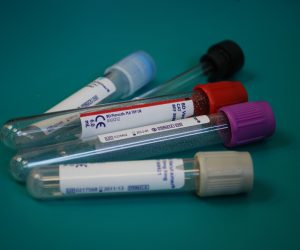Does Your Anxiety Cause Inflammation?
Dr. Don Colbert – While we know that chronic inflammation in the body hurts the brain, did you know the reverse is true as well? Stress and anxiety cause inflammation.
The anxiety-inflammation-brain cycle can be especially detrimental to those who cannot break out of a stressful lifestyle.
Here’s how anxiety increases inflammation, how inflammation affects the brain, and how you can improve all aspects. (Photo by sharon wright on Unsplash)
Anxiety Is a Widespread Issue
While everyone deals with different emotions, including stress, worry, and sadness, chronic anxiety is different. It’s considered a mental disorder, and it’s the most common ones in the United States, affecting more than 40 million adults (1).
Chronic anxiety can be debilitating and may affect almost all areas of your life. Anxiety is characterized by (2, 3, 4):
•Nervousness, fear, apprehension, and worrying
•Paranoia
•Feelings of being unsettled
•Trembling
•Upset stomach, or diarrhea
•Headache
•Heart palpitations
•Poor concentration, irritability, and mood swings
•Muscular aches and pains from tension
•Trouble falling/staying asleep and fatigue
•Being easily startled
Luckily, there is hope, especially for those who trust in God. While anxiety can be a major life challenge, you can overcome it with His help. Here’s more on how it can affect your health, and what you can do.
How Stress and Anxiety Cause Inflammation
The link between inflammation, anxiety, and other mental disorders like depression is well-documented (5). While inflammation is the body’s acute response to injury, chronic inflammation is now linked to many chronic diseases and mental illness.
To start, stress and anxiety can affect the gut and its bacteria. In fact, it’s hypothesized that the inflammatory cytokines increased by stress are at the root of digestive orders such as leaky gut syndrome (6).
Unfortunately, once leaky gut is present, a cycle is induced that starts with anxiety and stress, leads to leaky gut, and results in more stress and mental decline.
What’s more, a recent study of 100 participants found that anxiety, and not depression, actually increased inflammatory markers (7).
Full Circle: Inflammation Attacks the Brain
After anxiety alters the gut, brain function is affected and mental illness risk can be increased (6).
Believe it or not, the brain and central nervous system communicate with the digestive tract, hypothalamus, limbic system, and cerebral cortex. Chronic anxiety and stress increase inflammatory factors in the gut, especially when leaky gut syndrome is present. This, in turn, affects the basal ganglia, cortical reward, and motor circuits. This results in reduced motivation and motor activity, and altered neurocircuitry.
Similar relationships between inflammation and altered neurocircuitry have been observed in MDD patients with increased peripheral inflammatory markers, and such work is on the horizon for anxiety disorders and PTSD (8).
Inflammation and Alzheimer’s
What’s more, in his book called “The End of Alzheimer’s: The First Program to Prevent and Reverse Cognitive Decline,” Dr. Dale Bredesen, MD has documented his program that combats inflammation in order to reverse Alzheimer’s disease. He claims that chronic inflammation is one of three root causes of the disease, and by targeting the root, it can be reversed (9).
Tips to Reduce Anxiety
Ready to work to reduce your anxiety?
It’s a great first step to fight elevated cortisol levels, inflammation, and brain decline.
Try reading:
10 Steps to Reduce Anxiety and Find Joy: These steps include turning worries into prayers, replacing negative self-talk with Truth, focusing on your loved ones, and uncluttering your schedule.
9 Habits to Reduce Cortisol Naturally: Preparing for mornings ahead of time, exercise, choosing foods and drinks that lower cortisol, spending time with friends, laughing, praying, and getting adequate sleep are natural habits that can really help.
How to Relieve Stress and Anxiety When Life Seems Out of Control: By focusing on your health and cultivating gratitude, you can take control again and reduce stress.
Bottom Line
Anxiety is one cause of inflammation, and inflammation can spur a host of physical and mental ailments. While it may seem hopeless, there is always hope! You can reduce your anxiety and stress. If you are a Believer, you’ve got the Source of hope, joy, and peace within you. Take steps and form habits to reduce anxiety. It will make a positive impact on your health.
To read the original article click here.
For more articles from Dr. Colbert click here.




